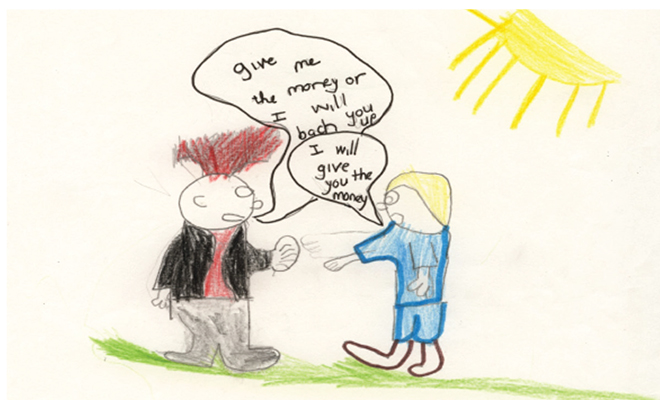Research-backed guide set to tackle cyberbullying

A guide backed by years of research into bullying gives teachers a reference when confronted with cyberbullying.
Produced at Flinders Uni the resource provides students and teachers with information, supporting theory, and practical lesson plans for an eight-week program, aimed at both primary and secondary students.
It has been incorporated into the latest version of the internationally acclaimed PEACE Pack intervention program, which has been used by more than 60 schools in South Australia and more than 350 schools in Greece, Italy, Malta and Japan.
The PEACE Pack has been embraced by South Australian public and Catholic schools. Brighton Secondary School commenced the intervention four years ago and has seen the bullying rate at its school reduced to 5% of all students, from an original 15–20%.
The 40-page cyberbullying manual builds on the single lesson included in the initial PEACE Pack and includes information on the law, social media use and tips for parents.
This unit was developed in response to teacher’s requests for a resource they could deliver to support their teaching in relation to digital citizenship.
“An expanded resource on cyberbullying was always part of the plan for the PEACE Pack but we needed to ensure it comprehensively incorporated all relevant research, and was informed by teachers’ classroom experience with this issue,” says Flinders University’s Professor Phillip Slee, who co-designed the PEACE Pack and is also a trained teacher and registered psychologist.
“The short term effects of childhood bullying are well-known and studies are increasingly improving our understanding of long-term damage as adults, including anxiety, depression and in extreme cases, suicidal ideation. The latest neuro-science research indicates that the impact of bullying is equivalent to exposure to domestic violence and physical abuse,” Slee says.
The cyberbullying manual was written by Flinders University’s Dr Mubarak Rahamathullain in association with Professors Antonella Brighi from Italy and Phillip Slee, and is the culmination of almost a decade of his research into child safety in cyberspace.
Rahamathulla says unlike traditional bullying, cyberbullying has no physical boundaries, can be anonymous, constant, and can spread through a peer group and beyond in seconds. “This makes it particularly damaging to children who are targeted and particularly easy for perpetrators.”
The new addition to the PEACE Pack covers every aspect of cyberbullying including abusive texting, social media impersonation, exclusion, sexting and sexual bullying, stalking, derogatory comments and content, and more. It is linked to the national curriculum and has a strong focus on promoting the mental health and wellbeing of students as part of their online lives.
“Young perpetrators and sufferers can engage in cyberbullying without fully understanding the nature of the internet,” Rahamathulla says.
“It’s crucial that all young people understand what happens to the information they post online, what behaviours constitute cyberbullying, and how these affect mental health and wellbeing. Our children and teenagers need to be prepared if it happens to them or if they witness it happening to others, and we need to build their skills to reduce the likelihood that they will become a perpetrator.”
Independent assessments have shown the PEACE Pack has a significant impact on reducing the level of victimisation and bullying, and promoting wellbeing and school connection. It takes a whole-of-school approach including looking at how people build relationships and deal with negative emotions, and informs anti-bullying school policies.
The PEACE Pack is founded on the principles of Preparation (P), Education (E), Action (A), Coping (C) and Evaluation (E) and has been providing primary and secondary schools with a framework to address school bullying and violence since 2001. It can be purchased by contacting Professor Phillip Slee at [email protected] and will be available soon from a dedicated website. All proceeds go towards further research and resources to address bullying and promote the mental health and wellbeing of young people.